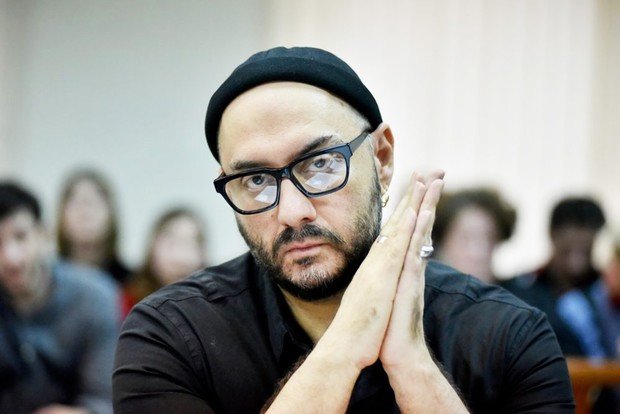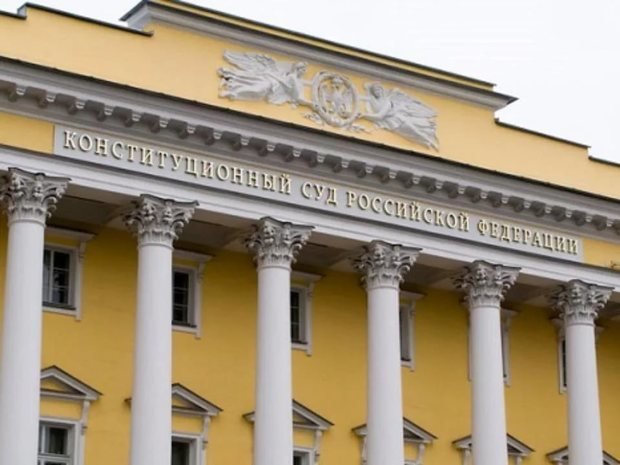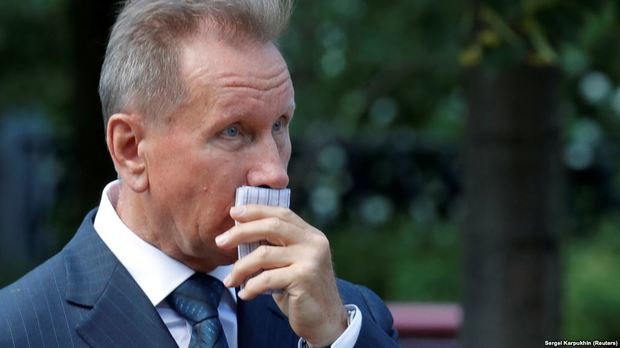''Regional competition is the only resource left in Russia''
Marat Gelman about the isolation of Russia, grave consequences of fashion for machismo and disease of overcentralisation. Part 2
In the second part of his interview with Realnoe Vremya, political strategist, collector and gallerist Marat Gelman tells why an artist can't be accused of fear whose example inspires football players beating people and if Putin will be able to choose an heir like Yeltsin did in 1999, that's to say, from the outside. See the first part here.
''My optimistic forecast has failed…''
Mr Gelman, you said two years ago if politicians and the media began degrading, artists would come to the fore. Two years have passed – few politicians can be admired, but I won't utter a word about what the mass media has turned into. But nothing is heard about artists, even those who aren't the higher echelon of the intelligentsia. Where are these new, even old names? Where are their voices?
You've put a strain on me, of course! (Laughing). I'm living in Montenegro but hold exhibitions in London, Vienna, Milan. I will open a new cultural centre in Paris in November. And I'm disappointed at the cultural state in Moscow (it's better seen in the media than in the situation across Russia). Again, Kirill Serebrennikov is arrested, then artist Pyotr Pavlensky went to Paris because a criminal case against him opened — it's the major events in the art in the last year. In my opinion, there haven't been bright, independent occurrences during this time, and power's strategy to freeze everything has worked – people are afraid. But people can't be accused of having a fear. A person who decided to become an artist didn't suppose he needed to be courageous. He thought he needed to be talented, educated, able to work, while the situation says he needs to be courageous! The courageous entered military colleges or something else!
The situation is complicated. But, in addition, the factor of isolation influences too. It's very hard to do something quite the opposite when the country is isolating itself from the world rapidly. Art, in itself, is open, culture and cultural exchange is the same thing, art won't exist without communication. To earn a living in Europe, I have to rush much more than in Russia. I can say that the quantity of communication, some artistic relations and contracts any artist has here is one hundred times more than in Russia. And this gives a good result. This is why, of course, it's sad that Russia is a big country, it has talented people in surplus, and bright occurrences can be observed, moreover, in all generations. Yes, my optimistic forecast has failed. And I have to admit that authorities have managed to strangle free art after politics, after the media, or they have almost managed.
But I will note an important advantage that was found almost a month ago when I held a Russian culture forum in Europe. Russian avant-garde doesn't live in Russia – the number one artist Ilya Kabakov is living in New York, the number two artist Erik Bulatov is living in Paris, the number three artist Ivan Chuykov is living in Dusseldorf, Dmitry Vrubel is in Berlin, Bob Mikhailov is also there, Dubossarsky is living in Tallinn, War group is in Jerusalem, while Montenegro has plenty of artists. Even if they aren't living in Russia as well as many famous writers, they are working for Russia anyway! And it's quite possible that something interesting for Russia will appear in this atmosphere, and people will perhaps go back to Russia.

''Kirill Serebrennikov is arrested, then artist Pyotr Pavlensky went to Paris because a criminal case against him opened — it's the major events in the art in the last year.'' Photo: mskagency.ru
''Power rattles the sabre on TV and then it is surprised that children shoot at school''
Rap battles gained popularity in Russia some time ago. And it was one of the rare bright cultural occurrences among the youth. But they disappeared very fast. Why?
Rap battles probably didn't disappear. Rappers maybe decided they didn't need such publicity. But battles themselves take place. Our culture has slams, you know, competitions of poets who perform in turn, they can be even called predecessors of battles. Poet Andrey Rodionov organises this slam in Moscow on 30 October, and I will go there – I love poetry. Yes, something disappeared, but this disappeared for us. What did Perestroika start with? The USSR started to print literature written before Perestroika but wasn't published for ideological reasons. And it turns out there was an interesting literary activity, there were powerful writers. But it seemed to an external observer there was nothing. This is why it's quite possible that some cultural clusters simply closed for the media and public attention. If publicity in modern Russia provides threat instead of fame, people probably changed a strategy and stopped promoting themselves.
Why is the number of these threats becoming bigger for cinematographers, artists, theatre workers? Why doesn't power stop those who destroy exhibitions, disrupt cinema and theatre performances? Thank God, we haven't had tragedies yet, but everything is possible.
Power made machismo fashionable and popular, which Putin personified for some time. And then power is surprised that football players beat people. Power rattles the sabre on TV and then it is surprised that children shoot at school. Of course, all questions can be answered like power did it. But it explains nothing and doesn't make us think. Let's think, what are the other answers? Our society is living in the following limits now: on the one hand, it's a kind of the ''People's Republic of Donbass'', that's to say, outlaws, anarchism, life costs nothing. On the other hand, it's ''Chechnya'' – strict rules, traditions and archaic nature. These two threats always appear, and the current power can live long to show people that these two ''prospects'' are much worse than what we have now. In other words, power can say either we will live Donetsk where everyone has a weapon, people shoot, you go to jail if you dislike something or everything will be like in Chechnya – everything is strict, you need to apologise to your boss at the slightest provocation. And power will achieve a lot with these ''prospects''. It also stimulates both things. All these national liberation movements and other ''public organisations'', dressed Cossacks who censor themselves when they go to the theatre, an exhibition, the murder of Boris Nemtsov by Chechnya people come from here.

''Any constitutional process means risks: if something goes wrong, if some rating or something else goes down, everything can go wrong.'' Photo: nalog-briz.ru
''It's hard to imagine that the new person will leave luxurious possessions to same Zolotov''
We've gradually approached the political agenda. Power started to speak about the necessity to make amendments to the Constitution, though carefully and cautiously at the moment. Head of the Constitutional Court Valery Zorkin was first to express his opinion about it. He said that the main law was leaning towards presidential power. How did you understand Zorkin's speech?
There are several problems power wants to solve by changing the Constitution. Firstly, it's Putin in office: it's unlikely to be possible to find an heir in his circle with such an amount of stolen things. This is why the most proximate attempt of the Kremlin is to stay in power. And this can be done easily, for instance, they will say our presidential power is so cruel, let's make a parliament where Putin will occupy the armchair of the parliamentary chairman. Or they will say that the federation needs content, that we have too Unitarian state today, which is true. And then the Federation Council, which represents a purely decorative body today, will turn into a real operating one, and Putin will chair it. And the third option where Putin remains in power is Belarus. The Kremlin will say, let's understand the union of Russia and Belarus in a new way, we will write the constitution of the united state again, and it will become the main constitution.
Undoubtedly, there are risks. Any constitutional process means risks: if something goes wrong, if some rating or something else goes down, everything can go wrong. We all know the Armenian revolution happened because the former president wanted to stay in power – he changed the presidential republic into parliamentary in the Constitution to occupy the premier's armchair, while it didn't work in the end.
Why is the heir a very complicated problem?
The current power is a business group, and it's very hard to get an heir inside the group if we consider that people in these groups have very complicated relations with each other. And who, apart from Putin, will restrain Sechin, Kadyrov and other Rotenbergs? It's unclear. If they take a person from the outside like Yeltsin took Putin, can we imagine that the new person will leave luxurious possessions to same Zolotov? No, of course, they will take them away from him. And the thought that everything will be taken away bothers them, of course. And Kremlin inhabitants want to substitute the idea of the heir for another situation. And then, after 2024, it won't be so important.
By the way, talking about Zolotov, how will the story with those complaints that Navalny had and Zolotov's promises and offers in the famous address to Navalny develop?
Zolotov made a silly mistake and calmly got off. In any case, it seems to him he got off calmly. And they will judge Navalny – this will go on. But, in general, the collision looks this way – everyone understands we have such a new character, Zolotov.

''Zolotov made a silly mistake and calmly got off. In any case, it seems to him he got off calmly.'' Photo: Reuters (kavkazr.com)
Can we hope that a real federation will be created if new changes are made to the Constitution? Or won't this happen under Putin? You once severely criticised the centralisation.
Complicated questions don't have simple answers. When I was a member of the Russian Civic Chamber, I dealt with decentralisation and understood why Kozak's commission couldn't succeed in decentralisation (Editor's Note: Russian Vice Prime Minister Dmitry Kozak). But regional competition is the only resource left in the country. And decentralisation is needed to have the right to compete. This is why, in general, we need to refuse unification, turn to the experience of the USA where the legal business of every state is very active, and regions develop in a different way. We also need to have different ways, that's to say, we have Krasnodar Krai, Bashkiria, Perm Krai, and their economy is completely different, but legislation is the same. The regions don't need to be simply given more money they collected – there must be legislative freedom, the creation of different competitive ways to develop a region. The regional development project was very interesting for me, and I dreamt of taking part in it because it's positive. And the overcentralisation isn't Putin's but Russia's problem. But, in general, we don't have to talk about any positive development concepts under current power.